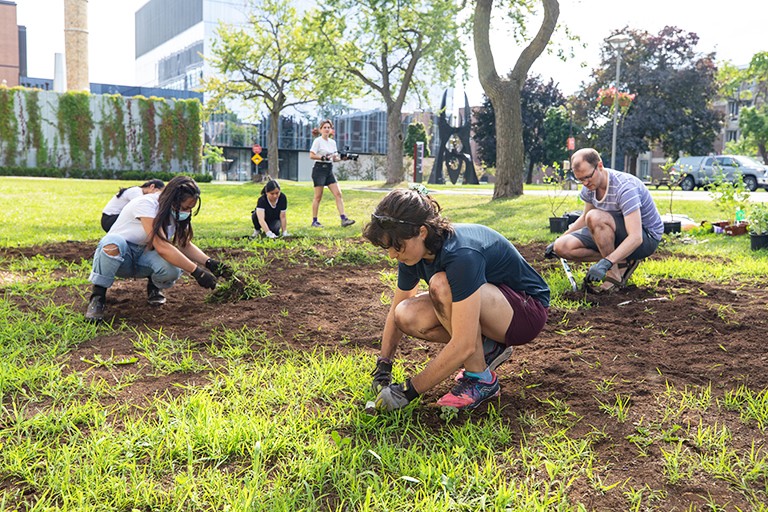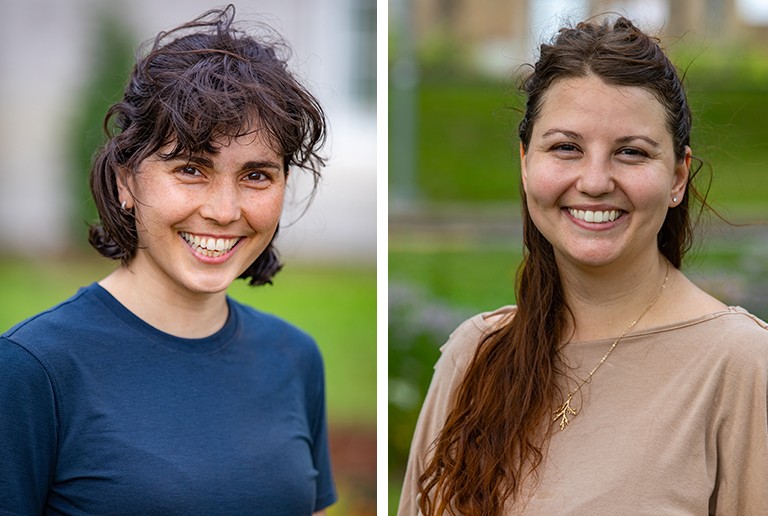Yeung says being involved with the initiative from the classroom through to planting enriched her learning experience.
“It was amazing to see our conceptual design idea become a reality — it definitely made me feel that our input as students matters to Concordia,” she says.
“It would be great to see more initiatives like this in the future. I’m looking forward to seeing the space grow into a luscious pollinator garden.”
The garden is located behind the Psychology Building and includes perennial plant species native to Quebec. The plants will return each year and bloom throughout the season, providing a burst of colour as well as food for pollinators from spring through autumn.
Cassandra Lamontagne, sustainability coordinator for Concordia’s Office of Sustainability, believes that, despite the work involved, this unique collaboration has benefited all parties involved and has fostered the experiential learning that the university is known for.
“This was the perfect project to kick off our Sustainability Living Lab program,” she says.
“Thanks to the hard work and dedication of these students and Professor Ziter, and the support from Facilities Management, we are now one step closer to meeting the goals of our Sustainability Action Plan.”
Learn more about Concordia’s Department of Biology and Sustainable Action Plan.
 Taylor Yeung: “I’m looking forward to seeing the space grow into a pollinator garden.” | All photos by Julian Haber
Taylor Yeung: “I’m looking forward to seeing the space grow into a pollinator garden.” | All photos by Julian Haber
 From left: Carly Ziter, assistant professor of biology, and sustainability coordinator Cassandra Lamontagne.
From left: Carly Ziter, assistant professor of biology, and sustainability coordinator Cassandra Lamontagne.
 Concordia’s Office of Sustainability gratefully acknowledges the support of WWF-Canada.
Concordia’s Office of Sustainability gratefully acknowledges the support of WWF-Canada.


